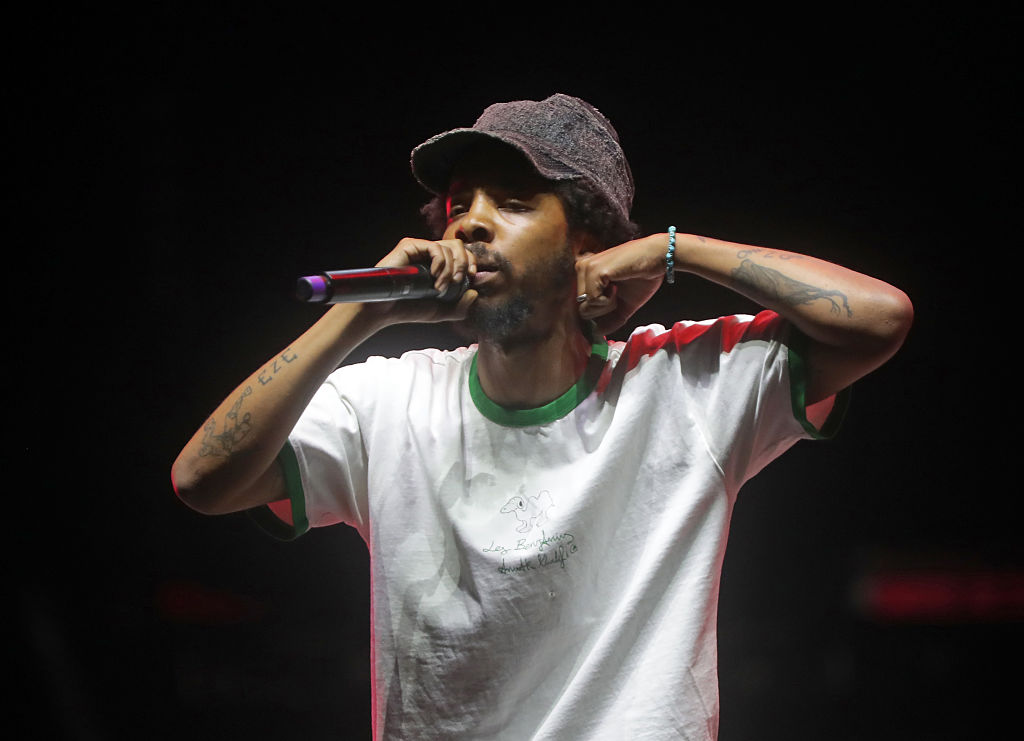When Samantha Carley logged on to Ticketmaster last spring to purchase tickets to see the Jonas Brothers at Rogers Centre, she planned to spend no more than $150 per seat.
Carley — a 31-year-old student counsellor from Northern Ontario — had done this many times before. A superfan, she’s seen the Jonas Brothers “probably 15 times” in the last 20 years. When the band visited in 2023, she paid about $120 for lower-level tickets.
On the day of the presale, she typed in her secret code and entered the Ticketmaster “waiting room.” As the queue of about 3,000 people slowly got smaller, the price of available tickets crept higher. When it was finally her turn, prices had already risen far beyond her budget. In a panic, she bought two seats in the lower bowl — $667 for the pair.
This was steep, but Carley was determined to bring her mother, who was being treated for lung cancer, to the show as a Mother’s Day gift. But as weeks passed, ticket prices began to drop steadily. By July, seats in the same section were selling for $200 less than what she paid for.
“I felt like I’d been scammed,” Carley told the Star. “Presales were once about giving fans an advantage. Now, it feels like a trap that punishes devotion.”
Carley is part of a growing chorus of fans frustrated with Ticketmaster’s “dynamic pricing” model, which allows artists and concert organizers to adjust the price of tickets in response to changing demand. These fans say it’s unfair that presale buyers — often the most devoted fans — are sometimes paying significantly more than those who wait for the general sale.
Last fall, Oasis scrapped its plan to use the “dynamic pricing” model for the North American leg of its reunion tour after facing significant backlash from their fans. In September, the U.K.’s competition regulator launched an investigation into whether Ticketmaster breached consumer protection law.
“This is part of a larger pattern of price manipulation and a lack of transparency in the live music industry — and it’s hurting fans,” Carley said. “Ticketmaster’s pricing model prioritizes profit over people, and artists like the Jonas Brothers, who built their careers on fan loyalty, should be aware of how damaging this is.”
Ticketmaster denies that it manipulates prices and says that it is artists and promoters, not the platform, who set and adjust ticket prices.
“There’s a lot of misinformation and misperception about what’s happening,” Elizabeth Lutz, vice president of communications at Ticketmaster, told the Star. “I can say with confidence that across the board, we rarely ever see prices change dramatically between presales and on-sale.”
Some business experts and industry insiders who spoke to the Star say Ticketmaster and concert organizers are following the dictates of the market. They argue that artists and promoters are simply trying to maximize revenue, like any other business.
However, others suggest that organizers are taking advantage of devoted fans, knowing they will pay top dollar.
Daniel Tsai, a business and law professor at the University of Toronto, points to the example of the K-pop supergroup Blackpink, who played two shows at Rogers Stadium this summer. During presale, some fans paid close to $1,000 per ticket, only to watch the prices steadily drop as the concerts approached.
“These fans, many of whom are teenage girls, are going into a presale thinking they will be treated as a priority customer,” Tsai told the Star. “But from a marketing perspective, they are being treated as suckers — as the fans who are dumb enough to pay top dollar from the get go.”
How does presale work?
Larger artists and bands typically offer various ways to access a presale to their fans before tickets go on sale to the general public. Presale codes are usually distributed through fan clubs, artist mailing lists or through sponsors such as AMEX.
According to Lutz, the VP at Ticketmaster, presales are designed to give fans early access to some of the best tickets in a venue, allowing them to secure their seats before the general on-sale.
However, Ticketmaster does not guarantee that presale tickets will be sold at the best prices.
Lutz emphasized that Ticketmaster does not use “surge pricing,” or any other algorithmic technology to adjust ticket prices in real time. Though it may appear that prices change while users are in the queue, she says what fans are seeing is simply a shift in which tickets are still available.
“Our role (as a marketplace) is really just to provide a safe and secure space (to purchase tickets),” Lutz said.
Why are fans feeling ripped off?
Cynthia Ramirez, 33, is a financial administrator living in Toronto. A K-pop superfan, she logged onto Ticketmaster to buy tickets for Blackpink, who were set to play a single show at Rogers Stadium.
When it was finally her turn, the only seats left were single seats, right up near the stage. In a panic, Ramirez decided that she’d go alone this time, and hit purchase on a standard floor ticket. The ticket cost $993.80.
Days later, a second Toronto show was added, and ticket prices began to drop. A few weeks later, she saw seats in her same section selling for as low as $450.
“I felt betrayed,” Ramirez told the Star. She tried contacting Ticketmaster for help, but was told she could not get a refund. (Ticketmaster does not offer refunds, but fans can exchange or upgrade tickets if they are able to find better seats at an equal or greater value.)
Frustrated, Ramirez decided to cut her losses, and sold her ticket for $350.
“I didn’t want to go anymore,” she said. “I felt like I’d rather lose money than support a band that is not taking care of their fans.”
David Soberman, a marketing professor at the Rotman School of Management at the University of Toronto, said these experiences, though unfortunate, are simply part of the marketplace.
“Any time you buy a ticket, to a concert or sporting event, there’s an element of risk as to how that value is going to evolve over time,” Soberman said. “And that possibility increases the further out you buy your ticket.”
He also pointed out that often, tickets bought during presale are worth more by the time the show comes around. “People always complain when they don’t get a good deal, but when they do get a good deal, they are as happy as can be.”
Tsai, on the other hand, doesn’t believe that we should simply let the market run wild. He believes there is a “moral obligation” to provide reasonably priced tickets to fans.
“I think there should be one consistent price. Yes, that goes against the idea of dynamic pricing and the profit mentality, but I believe in old-fashioned business ethics, and I think they should apply.”
“Don’t play games with the customers,” Tsai said. “Don’t try to be vultures and go after desperate people from the beginning.”
In recent months, fan backlash has pushed some major acts — such as The Cure, Neil Young and Jack White — to take a profit cut in order to keep their ticket prices lower.
However, that’s not much consolation for fans like Ramirez.
“It honestly broke my heart,” she said. “I saved for months to afford those tickets, and I sacrificed things like family vacation and using that money to go back to Mexico to see my family.”
“I still listen to Blackpink, but it’s not the same.”



